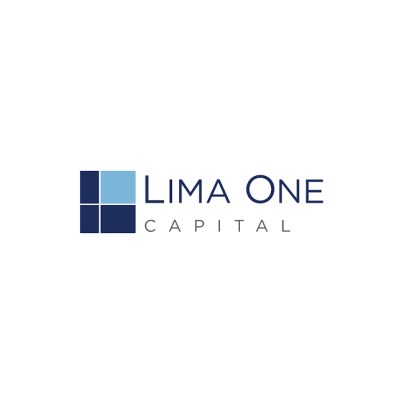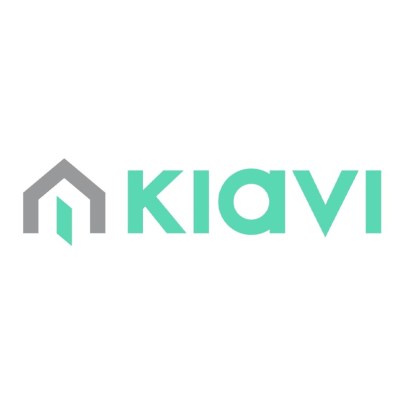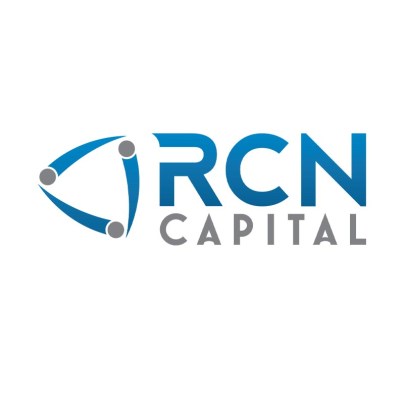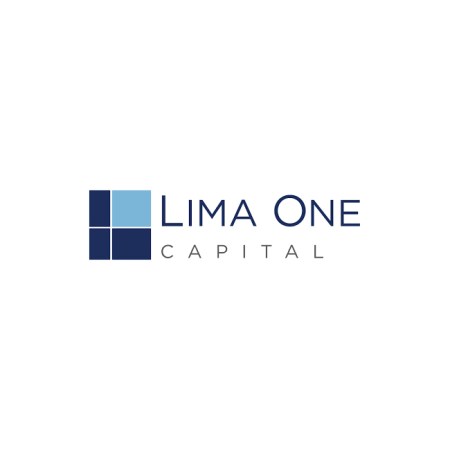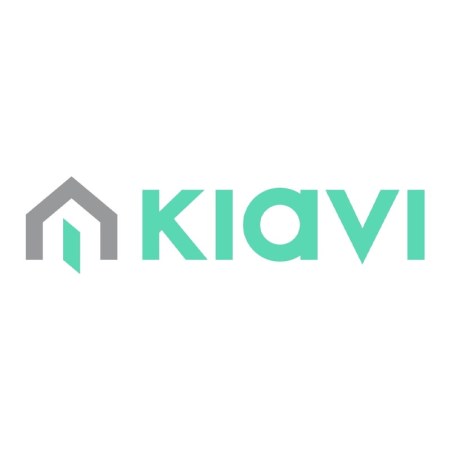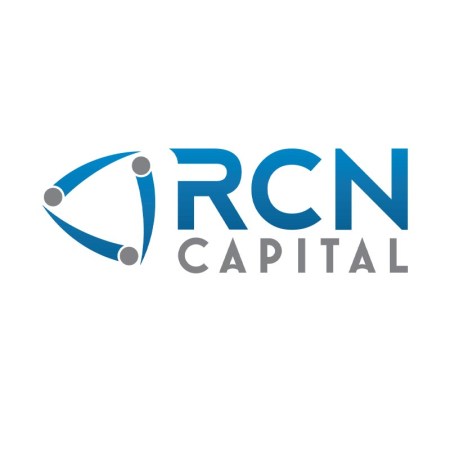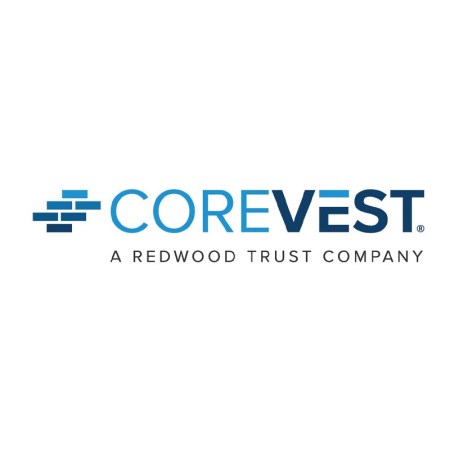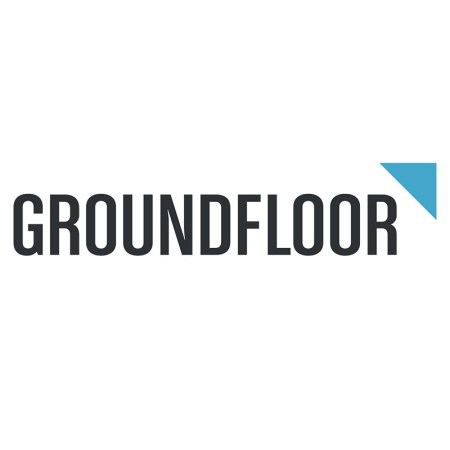
We may earn revenue from the products available on this page and participate in affiliate programs. Learn More ›
For many, flipping houses for resale can be a good way to make an income or bulk up their savings. But the process is not as simple as it usually looks on television shows or in marketing sales pitches. In fact, it’s crucial to know every aspect involved in flipping houses, from finding the right property to completing renovations to selling the home to the next buyer. Finding the best loans for flipping houses is one of the first steps to take to ensure the investor has the available funds not only to purchase the property but also to complete any necessary renovations or reconstruction.
- BEST OVERALL: Lima One Capital
- RUNNER-UP: Kiavi
- BEST ONLINE EXPERIENCE: RCN Capital
- BEST MULTI-PROJECT LOAN: CoreVest Finance
- BEST CROWDFUNDING LOAN: Groundfloor

What to Consider When Choosing One of the Best Loans for Flipping Houses
When searching for the best loans for flipping houses, it’s important to know what these loans include, how to qualify for them, and what their terms generally are. Although many financial institutions offer loans for flipping houses, the traditional bank down the street may not. Instead, investors should seek out hard money lenders, who specialize in loans for flipping houses.
Coverage Area
When searching for the best loan for flipping houses, investors will need to find the best hard money lenders that service not only the area where the investor lives but also where the property is located. It’s important to find this information first in order to narrow the list of possible hard money lenders. While many hard money lenders have a widespread coverage area, they don’t necessarily have a nationwide service area. As a result, it could take more time to find the best hard money lender to finance a property for flipping, but doing so at the beginning of the process can save a lot of time later.
Loan Amount
When applying for a loan to purchase a property for flipping, hard money loans work differently than traditional home loans. With a traditional home loan, the borrower receives money to purchase the property. With a hard money loan, the borrower receives money to purchase and renovate the property before reselling it. When searching for the best in funding a house flip, it’s not uncommon for hard money lenders to provide a maximum of 90 percent of the property’s purchase price and 100 percent of the renovation costs, provided the entire loan amount does not exceed 85 percent of the “after repair value,” or ARV.
How much a borrower could receive depends on the borrower’s flipping history. For borrowers who are looking to flip their first property, the lender may not provide as much money as it would for borrowers who already have flipped several houses.
Minimum Credit Score
As with any loan, hard money lenders do review borrowers’ credit scores when reviewing a hard money loan application. In general, a minimum credit score of 620 is preferred, but again, lenders offer some wiggle room depending on the borrower’s experience with flipping properties. For borrowers who have a lower credit score but can show they have a good history of flipping houses, the lender is more likely to approve a hard money loan. When preparing to apply for a loan for flipping houses, it’s a good idea for borrowers to take steps to boost their credit score beforehand to improve their odds of approval.
Interest Rate
Interest rates on fix-and-flip loans are typically higher than those on traditional home loans. However, for borrowers experienced in flipping properties, lenders may offer lower interest rates on hard money loans, particularly if the lender has worked with that borrower in the past and the borrower has successfully completed multiple flips. Of course, it’s also important to shop around with hard money lenders to find the best rates. Try to get at least three quotes on loans with the same terms from three different lenders. Because rates fluctuate, it’s a good idea to get these quotes on the same day for a fair comparison.
Approval Time
When applying for a traditional home loan, it’s not uncommon for approval to take between 30 and 45 days, and sometimes even longer. With a fix-and-flip loan, though, approval times are much shorter. In fact, typical approval times range between 1 and 10 days. This benefits the borrower, who can make an offer and close on a property purchase quickly. Fast approval times are possible because lenders evaluate the borrower’s application based on a few simple factors. These include the property’s value and condition, the borrower’s experience in flipping houses, the amount the borrower can provide for a down payment or has in equity, the plans for flipping the property, and the borrower’s ability to pay the loan’s monthly payments.
Loan Length
Unlike traditional mortgages that have loan terms of 15 years or longer, a fix-and-flip bridge loan is a short-term loan, usually around 12 months in length. Given the fact that borrowers often plan to flip a property in a year or less, this term is reasonable. In addition, a fix-and-flip bridge loan usually doesn’t have prepayment penalties, so borrowers can pay it off early if the house is completed and sells before the loan term is up. In the event there are delays with the renovation, lenders may offer the ability to extend the loan for a few months, although an extension could incur an additional fee.
Eligibility Requirements
When applying for a loan for flipping houses, it can be a bit easier to qualify than when applying for a traditional mortgage. That being said, there are still some key factors the hard money lenders will review before handing over the cash. As mentioned before, they will look at the borrower’s credit score, but they also want to know what cash and/or equity the borrower brings to the table. This not only includes a down payment but also the financial resources showing the borrower’s ability to repay the loan. In addition, hard money lenders value the borrower’s experience in flipping houses and are more likely to approve a loan for a borrower who has flipped several properties. In fact, some lenders only work with experienced house flippers.
Down Payment
As with a traditional mortgage, hard money lenders expect borrowers to pay a down payment when applying for a fix-and-flip bridge loan. Typically, the borrower is expected to put down 15 to 20 percent of the purchase price of the property. If the borrower has a high credit score, the amount of the down payment could be lower than what is required for those with a lower credit score. In some cases, the lender may accept equity from another property as the down payment. For instance, if the borrower owns a commercial building with $250,000 in equity in it, the lender may agree to a second mortgage as collateral on the hard money loan.
Loan Type
A hard money loan provides cash for the short term to purchase a property the borrower intends to repair or renovate and then sell to pay off the loan. However, borrowers may consider other types of loans for this purpose, such as home equity loans or HELOCs (home equity lines of credit), or a cash-out refinance. While these also could provide needed cash, there are drawbacks to using these types of loans for flipping houses. First, these types of loans from conventional mortgage lenders may take significantly longer to approve and fund, which can cause delays for house flippers looking for financing. Second, these loans use the borrower’s primary residence as collateral, so there’s greater inherent risk compared with hard money fix-and-flip loans.
Our Top Picks
When researching the best hard money lenders, we looked for lenders with a large coverage area, wide range of loan amounts, and short approval times.
Best Overall
Lima One Capital
- Coverage Area: 46 states and Washington, D.C.
- Loan Amount: $75,000 to $3,000,000
- Approval Time: 10 days
- Loan Length: 13, 19, or 24 months
- NMLS Unique Identifier: 1324403
Pros
- Large service area covering 46 states and Washington, D.C.
- Wide selection of loan types, options, and terms available
- User-friendly online customer dashboard
- Detailed market analysis available online for each coverage area
Cons
- Relatively high minimum credit score requirement
Why It Made the Cut: Lima One Capital offers all-around excellence because it doesn’t have any glaring weaknesses that would prevent many people, including first-time house flippers, from using its financing services. With a wide coverage area, Lima One Capital supports both first-time and experienced house flippers, and it offers a multitude of lending options. More options allow borrowers to tailor their loan according to their financial situation, property type, property use, and real estate goals. Interest rates on Lima One Capital loans vary greatly, and first-time flippers may be on the receiving end of a higher rate than experienced flippers. The company’s minimum credit score requirements may be on the higher end for hard money lenders, but borrowers can still potentially qualify for a loan even if they don’t have a sterling credit history. In addition, while an online portal is not in and of itself unique, Lima One’s customer dashboard is very intuitive, clearly laid out, and easy to navigate. Also, the company provides free market analysis materials to help borrowers stay up to date on local real estate trends and identify locations that present opportunities for profitable house flips.
Runner-Up
Kiavi
- Coverage Area: 32 states and Washington, D.C.
- Loan Amount: $50,000 to $3,000,000
- Approval Time: As little as 1 to 2 days
- Loan Length: 12, 18, or 24 months
- NMLS Unique Identifier: 1125207
Pros
- Quick loan approval of 1 to 2 days
- Loan approval possible with credit score alone
- No appraisal required
Cons
- Relatively small service area covering 32 states and Washington, D.C.
- Online application process can be somewhat user-unfriendly
Why It Made the Cut: Kiavi offers a quick approval process, minimal borrower eligibility requirements, a wide range of loan amounts, and the ability to receive a loan without an appraisal. With Kiavi, borrowers won’t have to wait long for loan approval thanks to the company’s quick approval time of 1 to 2 days, though the company’s online application process is not overly intuitive. Unlike other hard money lenders, Kiavi could approve a loan on the borrower’s credit score alone. Borrowers do not need to verify their income or liquidity with pay stubs or W-2s to qualify for a loan. In addition, the borrower can save time and money on appraiser fees since Kiavi doesn’t require an appraisal of the property. Kiavi’s 32-state coverage area is relatively small for larger fix-and-flip lenders, so some interested borrowers may not be able to work with the lender, depending on their location. Additionally, the online application is somewhat user-unfriendly. But for borrowers in the coverage area, the benefits of quick approval based on just a credit score could far outweigh any difficulty navigating the company’s website.
Best Online Experience
RCN Capital
- Coverage Area: 45 states and Washington, D.C.
- Loan Amount: $50,000 to $7,500,000
- Approval Time: 10 days or more
- Loan Length: 12 months
- NMLS Unique Identifier: 1045656
Pros
- Relatively high $7.5 million maximum loan amount
- Easy online loan application
- Responsive live chat support
Cons
- Limited 12-month loan length
Why It Made the Cut: RCN Capital has a quick and user-friendly online application process, plus the ability to chat live with actual agents, further adding to a strong online experience. RCN Capital offers a user-friendly online application process, and it gives borrowers more ways to get expert support and conveniently find answers to their financial questions on its website, which can be especially valuable to first-time house flippers. The company also offers a relatively high maximum loan amount for home flippers who want to take on bigger projects with larger purchase prices. The company’s approval time of 10 days or more is on the higher end in this space, but the high loan amounts could be worth the wait. RCN Capital’s 12-month loan term is one of the shorter loan terms for this type of purchase, although there is an option to extend the loan term by another 6 months if borrowers require extra time to complete their renovations. The lender services a large area of the country, which can make it easier for borrowers to get the fix-and-flip bridge loan they need.
Best Multi-Project Loan
CoreVest Finance
- Coverage area: 48 states and Washington, D.C.
- Loan amount: $200,000 to $50 million
- Approval time: 2 to 7 days
- Loan length: 18 to 24 months
- NMLS Unique Identifier: 1627183
Pros
- Large service area covering 48 states and Washington, D.C.
- Extremely high $50 million maximum loan amount
- Relatively quick loan approval of 2 to 7 days
- Revolving line of credit option available
Cons
- Not available to first-time house flippers
- Relatively high minimum credit score requirement
Why It Made the Cut: CoreVest Finance offers revolving credit options, which can be used to finance multiple projects at once, and also services loans in most parts of the country. Using a revolving line of credit from CoreVest Finance may allow borrowers to finance multiple flips as long as they do not exceed their borrowing limit, which could be extremely high given the company’s maximum loan amount is $50 million. And because CoreVest Finance provides lending services to most of the nation, more house flippers are likely to receive a loan, although not first-time house flippers. Applicants must have flipped at least three houses over the past 2 years to meet minimum eligibility requirements. The company also has a relatively high minimum credit score requirement that borrowers will need to meet. Borrowers who do apply with CoreVest Finance will find out if they are approved within 2 to 7 days, which allows them to quickly snap up a property. And because the company can finance multiple flips at once, borrowers can work on several houses simultaneously, even if they are in different states.
Best Crowdfunding Loan
Groundfloor
- Coverage area: 30 states and Washington, D.C.
- Loan amount: $75,000 to $1.5 million
- Approval time: As little as 24 hours
- Loan length: 9, 12, or 18 months
- NMLS Unique Identifier: N/A
Pros
- Relatively low credit score requirement
- Low minimum interest rate
- Quick loan approval in as little as 24 hours
- No appraisal required
Cons
- Relatively small service area covering 30 states and Washington, D.C.
- Relatively low $1.5 million maximum loan amount
Why It Made the Cut: Groundfloor has relatively low credit score requirements and introductory interest rates, plus no appraisal requirement, which could save borrowers time and money. Groundfloor uses a crowdfunding business model, which allows it to set lower interest rates in some cases and allow for more flexible borrower qualifications, such as a low minimum credit score requirement and no appraisal requirement. Low interest rates for this type of loan may also be available, although not all borrowers will necessarily qualify for the lowest rate possible. Groundfloor has a smaller coverage area of just 30 states, so it may not be a viable option for all prospective borrowers. Because Groundfloor is a crowdsourcing platform and not a traditional lender, it is not registered with the Nationwide Multistate Licensing System (NMLS). Those who can apply with Groundfloor could receive approval in as little as 24 hours. And while the company’s maximum loan amount of $1.5 million is low for these types of loans, it’ll likely be high enough for many borrowers looking to flip a home. With no required appraisal, a loan from Groundfloor can also save borrowers money and time so they can get started on their house-flipping project faster.
Our Verdict
Lima One Capital is our pick for Best Overall because of its wide coverage area, multiple lending options, and support for both first-time and experienced house flippers. We chose Kiavi as the Runner-Up because of its relatively fast approval process, minimum borrower eligibility requirements, and no requirement for an appraisal.
How We Chose the Best Loans for Flipping Houses
To find the best loans for flipping houses, we looked at lenders specializing in hard-money fix-and-flip loans. Coverage area, minimum credit score requirements, interest rates, and loan approval timelines all factored into our rankings. In addition, we factored in the variety of loan types and financing options offered to borrowers. We also considered whether hard-money lenders require borrowers to have flipping experience or if first-time flippers would be eligible for a loan. Plus, we examined how easy it is for borrowers to apply online and get virtual support without having to call a lender representative or visit a local office.
Before You Choose One of the Best Loans for Flipping Houses
Although we have researched hard-money lenders for the best loans for flipping houses, it’s important to note these lenders and their loans may not be the right fit for every borrower. In particular, not every hard-money lender offers loans to first-time house flippers, so researching the types of borrowers a lender works with is as important as looking at loan terms and interest rates. Also, unlike many traditional financial institutions, not every hard-money lender has a nationwide presence, so borrowers should check at the outset for lenders who provide loans in the areas where they live and plan to buy property.
Cost of Taking Out One of the Best Loans for Flipping Houses
Traditional mortgages often include a lot of fees for such expenses as closing costs, home inspections, appraisals, and title fees, among others. While fix-and-flip loans don’t necessarily incur the same amount of fees, it’s important to note that borrowers will need to be prepared to bring money to the table, most notably for the down payment. There could be other fees as well, such as appraisal fees, although some hard-money lenders don’t require appraisals. Therefore, borrowers should ask lenders up front to provide a list of all costs, fees, and other expenses for a fix-and-flip loan so they can properly evaluate their total costs.
The Advantages of Taking Out One of the Best Loans for Flipping Houses
Working with hard-money lenders could provide peace of mind for house flippers, particularly first-time flippers who are looking for house-flipping tips and typically want an experienced financial partner in this venture. The majority of lenders featured in this roundup service loans in most parts of the country, making it easier for borrowers to get financing. In addition, many have requirements that are easy for many borrowers to meet, making qualifying a smooth process.
- Many lenders have lower minimum credit score requirements than traditional financial institutions.
- Unlike traditional mortgages, fix-and-flip loans can often be approved in 10 days or less.
- Some hard-money lenders offer very high loan limits, so borrowers can invest in higher-end properties.
FAQs
Flipping houses can be a confusing process, particularly for investors who are first-time house flippers. Researching how fix-and-flip loans work and the lenders who offer them is essential to finding the best loans for flipping houses. These are a few of the most frequently asked questions for those shopping for a fix-and-flip loan.
Q. What are house-flipping loans?
They are loans used by investors who want to buy a property, repair or renovate it, and then sell it for profit. Loans for flipping houses are different from traditional mortgages since they are shorter-term and higher-risk for the lender.
Q. How do I get a loan to flip a house?
To get started, you need to fill out an application with a hard-money lender. You’ll then need to provide information on the home you want to flip and the length of your desired loan as well as personal information like your credit score. Bear in mind that many hard-money lenders won’t lend to first-time flippers since they have no house-flipping history to show their trustworthiness to the lender.
Q. What type of loan is best for flipping a house?
A fix-and-flip loan is tailored for borrowers looking to flip a house. This is a type of hard-money loan that provides funding for the borrower to purchase and renovate the house before selling it for profit. In general, fix-and-flip loans aren’t provided by traditional lenders such as banks and come instead from private lenders and investors.
Q. Can I flip a home with a traditional mortgage?
You could flip on a residential mortgage, but the loan terms could include a prepayment penalty that could eat into any profits. The best type of loan for flipping a home is a fix-and-flip loan from a hard-money lender.
Q. What is the 70 percent rule in house flipping?
This rule recommends that house flippers should not spend more than 70 percent of the home’s after repair value less the costs for repairing or renovating the property. Spending any more than that could eat into the borrower’s profits and could even cause them to lose money upon the sale of the home.
Q. Can I make money flipping houses?
Yes; house flippers can make money, but it can be a risky way to earn an income. If you’re wondering how much house flippers actually make, the answer is that it depends on the home, its location, the real estate market conditions, and more. The best state to flip a house can vary, as can the ability for the flipper to make money in different areas.
Q. On average, how long does it take to get approved for a fix-and-flip loan?
Most hard-money lenders approve a fix-and-flip loan in 10 days or less, though the exact timing depends on the lender. The best hard-money lenders in Florida may have different turnaround times than similar lenders in other states.
Q. How big a down payment do I need for a fix-and-flip loan?
Most hard-money lenders require a down payment of 15 percent to 20 percent of the property’s purchase price. It may be possible to find a lender that requires less, but that will require more shopping around to find the best loan for flipping houses.
